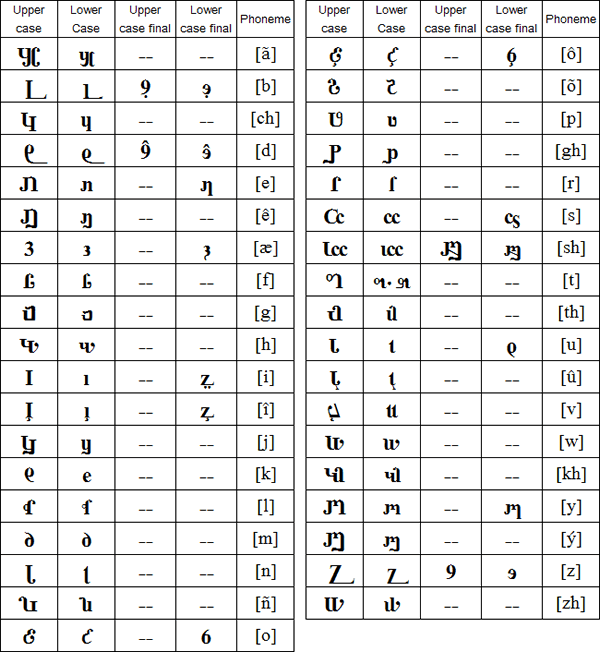The Persian-Avestan alphabet (alefbâ Pârsi Avestâyi) was created by Lourenço Menezes D'Almeida and is an alternative script for writing the Persian and Avestan languages. It was inspired by the Avestan alphabet used to write the sacred scriptures of the Zoroastrian religion and designed to resemble modern western typefaces in both format and use. As such, the alphabet runs from left to right, differentiates upper from lower case and obeys common rules of punctuation present in most European languages.
The letters represent every phoneme used today in the modern Persian language and are intended to match the Latin letters used in the transcription rules set by the Official Iranian Romanization System and UniPers. Additionally, there are letters included in the alphabet intended to represent phonemes particular to the Avestan language (such has "ñ", "å", "ã", "th", etc.), organized in such a way as to perfectly match the transcription rules used by Avesta.org.
The Persian-Avestan alphabet was designed to be used preferably with phonemic orthography, meaning its letters correspond exactly to the phonemes intended. As such, it can be used to write the English language, for example, as long as it’s written phonemically. For example, the word passion is "péšan" not "passion":
![]()
Three letters, "b", "d" and "z", have an additional final form, both in upper and lower case, to avoid overlapping with following words: e.g.
![]()
These graphemes can be placed by typing the letters "ì", "ò" and "ù" in the keyboard, respectively.
Finally, all vowels have an optional final form which can be applied by typing them with a "¨" diacritic mark (or "`", in the case of "â" and "æ", and "´", in the case of "ô" and "î"). There is only one ligature in the alphabet which is used when typing "t" after "a", "e", "i", "y", "r", "l", "ñ" or "x". In that case the writer should type "§" instead, e.g.:
![]()



Tamâme afrâde bašar âzâd be donyâ miyâyand va az lahâze heysiyyat va hoquq bâ ham barâbarand, hame dârâye aqlo vejdân mibâšand va bâyad nesbat be yekdigar bâ ruhe barâdari raftâr nemâyand.
All human beings are born free and equal in dignity and rights. They are endowed with reason and conscience and should act towards one another in a spirit of brotherhood.
(Article 1 of the Universal Declaration of Human Rights)
Download a font for Persian-Avestan (TrueType, 571K)
Constructed scripts for: Ainu | Arabic | Chinese languages | Dutch | English | Hawaiian | Hungarian | Japanese | Korean | Lingala | Malay & Indonesian | Persian | Tagalog / Filipino | Russian | Sanskrit | Spanish | Taino | Turkish | Vietnamese | Welsh | Other natural languages | Colour-based scripts | Tactile scripts | Phonetic/universal scripts | Constructed scripts for constructed languages | Adaptations of existing alphabets | Fictional alphabets | Magical alphabets | A-Z index | How to submit a constructed script
[top]
You can support this site by Buying Me A Coffee, and if you like what you see on this page, you can use the buttons below to share it with people you know.

If you like this site and find it useful, you can support it by making a donation via PayPal or Patreon, or by contributing in other ways. Omniglot is how I make my living.
Note: all links on this site to Amazon.com, Amazon.co.uk
and Amazon.fr
are affiliate links. This means I earn a commission if you click on any of them and buy something. So by clicking on these links you can help to support this site.
[top]